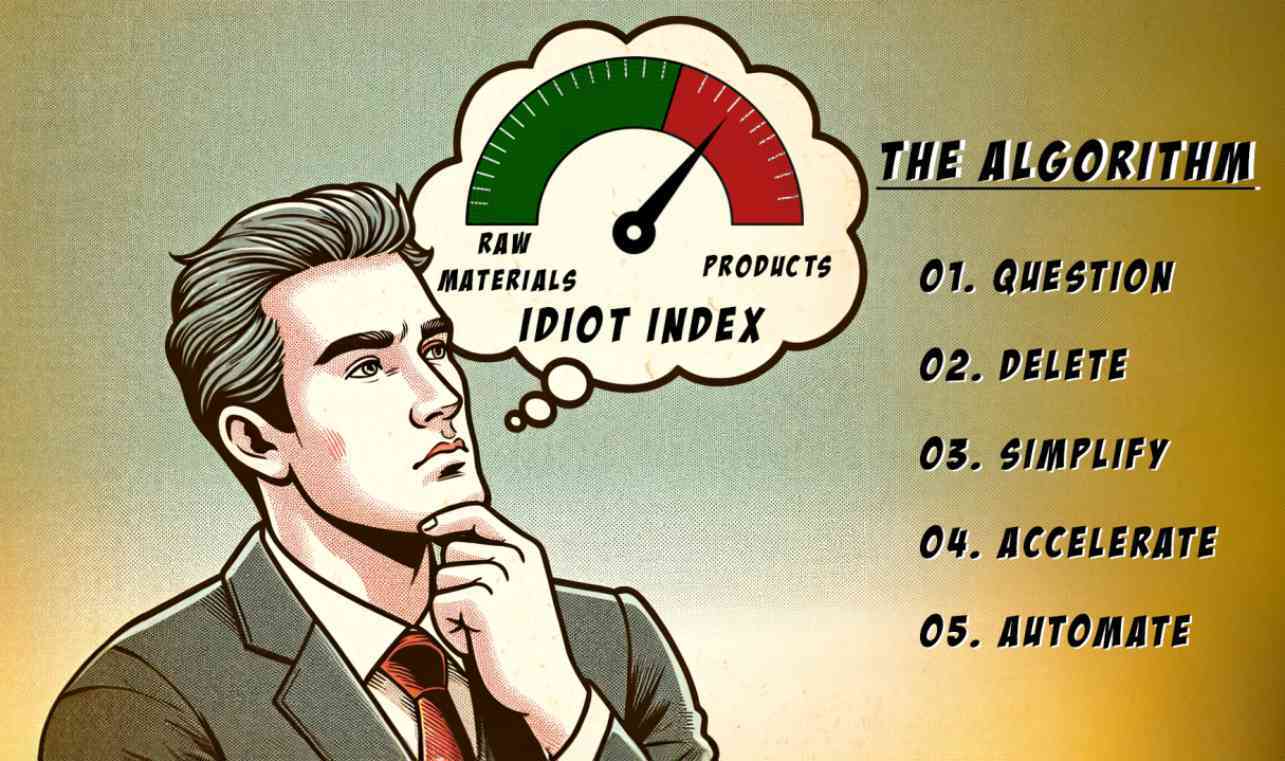Edit: this question was originally closed because it is "not related to space exploration". However, SpaceX's major achievement is reducing the launch cost for space exploration. Elon credits his cost reduction strategies (including the Idiot Index) for reducing the cost of Raptor engines 10-fold.
Elon is famous for (amongst other things) his “Idiot Index” mantra. This quantity is a component’s production cost as a multiple of its raw material cost.
 https://www.linkedin.com/pulse/elon-musks-management-mantra-idiot-index-beyond-thushan-pathirana-fv0hc
https://www.linkedin.com/pulse/elon-musks-management-mantra-idiot-index-beyond-thushan-pathirana-fv0hc
This index evaluates the efficiency of a component by comparing its total production cost to the cost of its raw materials. For instance, if a component costs 1000 to produce but the raw aluminum in it is only worth $100, it would have a high idiot index
Fundamental to Musk's philosophy is the practice of challenging every requirement, a mindset that has underpinned his achievements at Tesla and SpaceX.
The "idiot index" was particularly highlighted during Musk's focus on the Raptor engine for SpaceX's Starship, which necessitated manufacturing hundreds of units at a reasonable cost.
But parts with a higher Idiot Index are not necessarily more idiotic. Reducing material or substituting a cheaper material (like stainless for carbon composite) will raise, not lower, the Idiot Index. This despite the fact the new design may reduce overall production cost.
Conversely, some parts get almost their entire value from processing, and raw material cost is negligible (computer chips vs vacuum tubes). Chips may have an astronomic Idiot Index, but it would be truly idiotic to replace them with tubes.
Since what matters is overall production cost, why not just look at that instead of inventing a misleading “Index”?